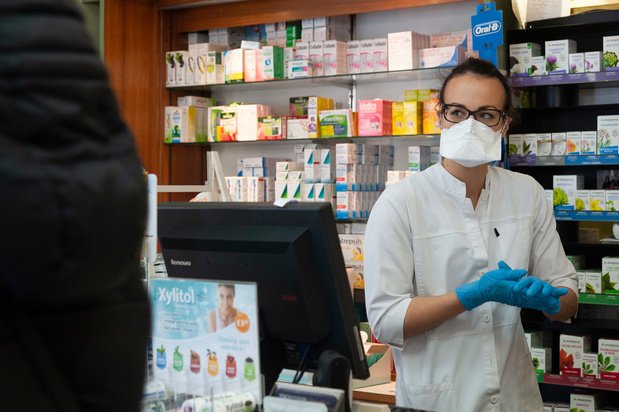Belgian pharmacists are not happy with the government's decision that allows medical masks to be sold in supermarkets, according to several pharmacists' associations.
Up until now, the mass distribution of surgical masks had been banned, due to scarcity, since 23 March. Pharmacies were the only ones allowed to sell them, and only on prescription. However, the federal government decided this weekend that they can be sold in supermarkets from now.
There is still a shortage of medical masks for those who really need them, according to the pharmacists. "Medical gear should be used in a targeted way, for people who come into contact with at-risk groups or people who are potentially infected themselves," Lieven Zwaenepoel, spokesperson for the APB, told Het Nieuwsblad.
Additionally, by offering the masks to "just anyone" in the supermarket, people do not get any information about how the masks should be used properly, he added. "And if you use them incorrectly, not only will they be of no use to you, but they will also become a source of infection," Zwaenepoel said.
Related News
- How to use, remove and wash a face mask?
- Not wearing mask on public transport faces €250 fine
- Supermarkets can sell face masks as of Tuesday
The government's decision to leave the sale of the masks to the supermarkets is "a slap in the face for the more than 4,800 pharmacists in Belgium," Hilde Deneyer of the Flemish Network of Pharmacists (VAN) told VRT.
It is understandable that the government wants to distribute the masks in as many places as possible, so that citizens can get one easily, according to Deneyer. On the other hand, the supermarket is not a good place to sell them, because their use needs some explanation. "For a good and safe use of face masks, it is very important that good advice is given," she said, adding that she had "yet to see it happen that cashiers in supermarkets will take the time to explain the good use of mouth masks."
Additionally, consumers organisation Test-Achats has also demanded clear guidelines, such as agreements on prices and the quality of the masks.
Maïthé Chini
The Brussels Times

